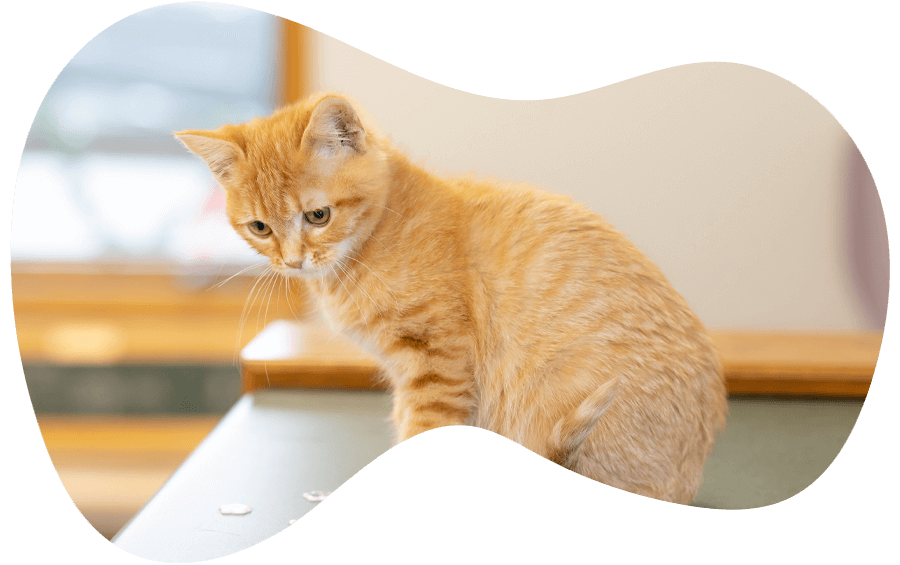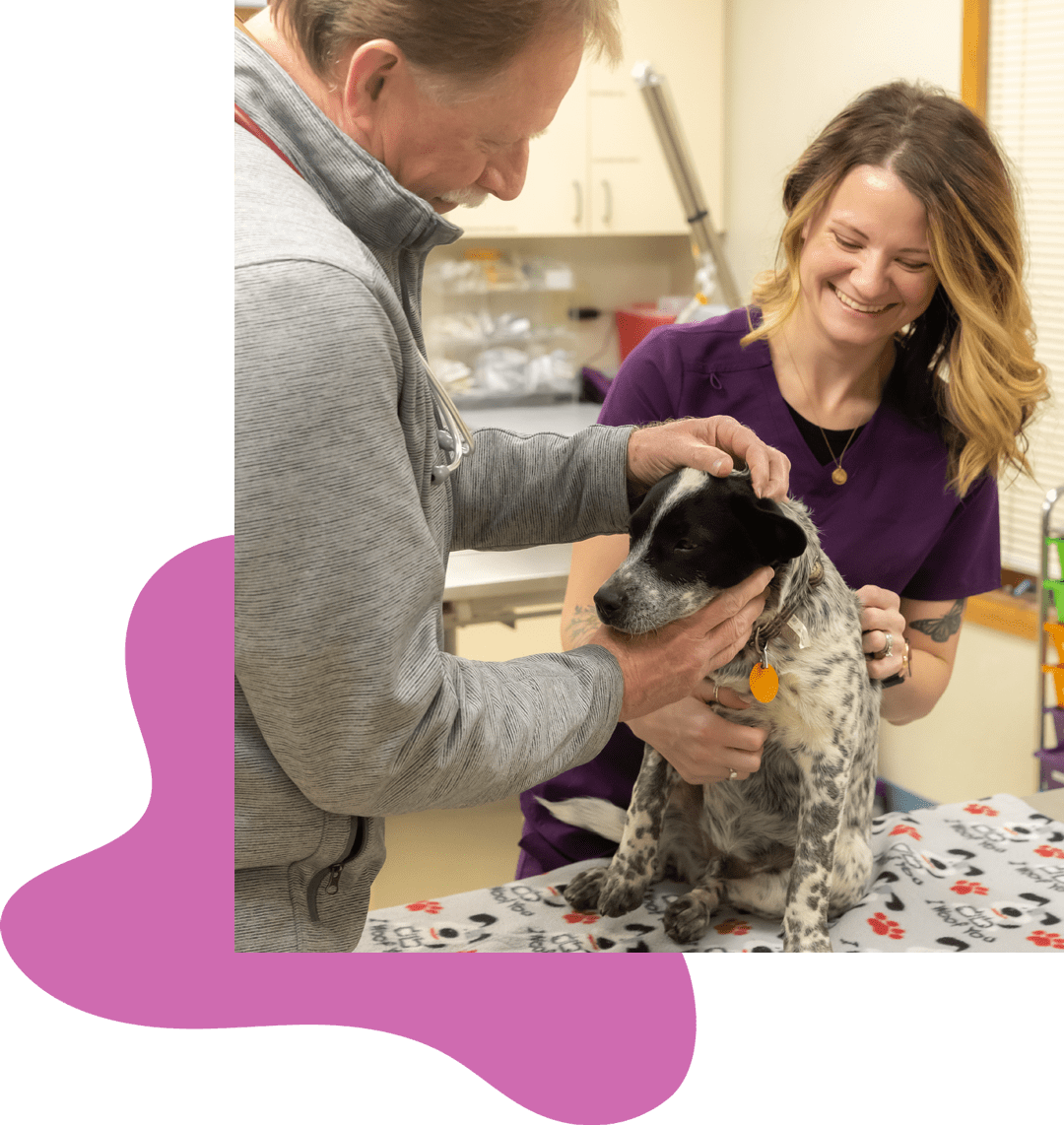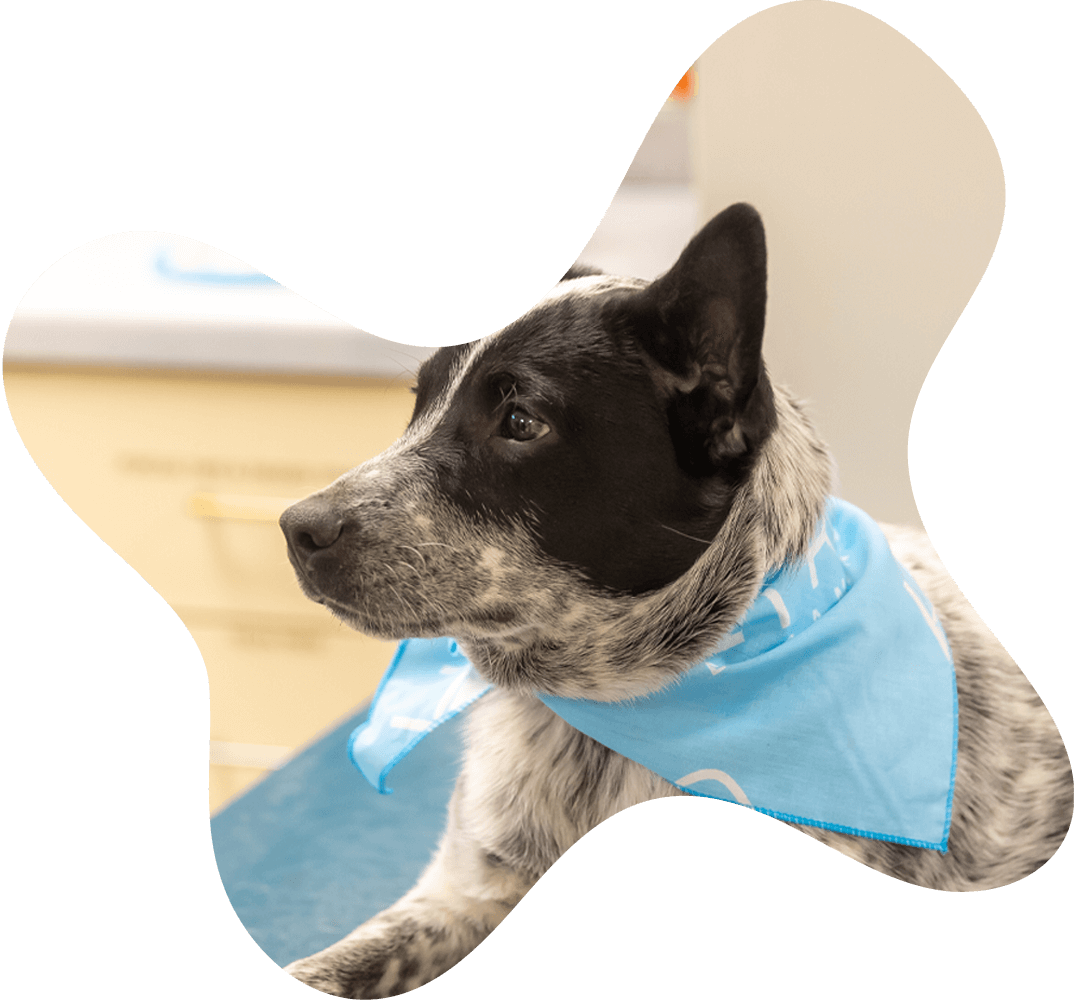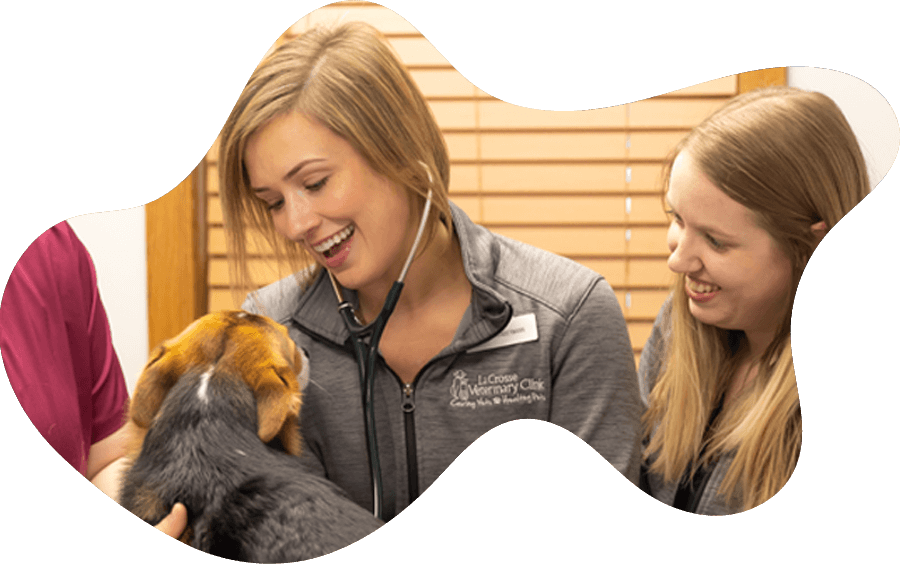Cat and Dog Surgery in La Crosse, WI
La Crosse Veterinary Clinic strives to deliver the best pet surgical care with a state-of-the-art cat and dog surgery suite equipped with a heated hydraulic lift table, the latest monitoring devices, electrocautery, inhalation anesthesia, and LASER. We perform spay and neuter procedures regularly, along with soft tissue, orthopedic, ophthalmic, and abdominal surgeries at our hospital. In addition to making our patients as comfortable and safe as possible, we also want to give you peace of mind about leaving your pet in our team’s hands. Our veterinarians and staff follow rigorous safety protocols for anesthesia and all other aspects of our surgical service.
Schedule your cat or dog’s surgery with our online form, or call (608) 781-3466!
Spay and Neuter: More Than a Routine Surgery
One of the cornerstones of a pet’s lifelong healthcare is the spay/neuter surgery. We recommend this step for most dogs and cats as a safeguard against unwanted pregnancies and various reproductive infections and cancers. The goal of spay and neuter surgeries is to reduce or prevent life-threatening diseases and eliminate the heat cycle in females, minimize or prevent hormonal behaviors such as urine spraying, mounting, roaming, and vocalizing, and improve the overall length and quality of your pet’s life.
Another important benefit of spay and neuter surgeries is that they can play a role in reducing animal overpopulation and homelessness. Spaying and neutering can improve the lives of countless dogs and cats!


Your Pet’s Surgery Safety is Our Top Priority
Your pet’s safety and comfort are our chief concerns throughout their surgery, and we want you to feel assured that your pet is in good hands. That’s why our standards for surgical care are top quality. While anesthesia is not without risk, we take the following steps to minimize that risk as much as possible:
- Pre-anesthetic testing
- Improved anesthetic drugs
- State-of-the-art monitoring equipment
- Increased veterinary expertise and experience
- Pre-anesthetic testing
- Improved anesthetic drugs
- State-of-the-art monitoring equipment
- Increased veterinary expertise and experience
The depth and type of anesthesia your pet receives can vary depending on the procedure. There are intravenous, intra-muscular, and inhalation options available for us to choose from. Many times, a combination of multiple anesthetics including pain medications is used.
Laser Surgery
La Crosse Veterinary Clinic remains on the cutting edge of veterinary medicine and surgery by offering laser surgery. This exciting and important technology is used daily by our veterinarians to provide the most advanced and compassionate medical care for your pet.
Click below for more information about laser surgery.
LASER is an acronym for Light Amplification by Stimulated Emission Radiation. This device generates a beam of light energy at a specific wavelength. The most commonly used surgical laser is the carbon dioxide laser. The wavelength of this laser beam absorbs the water found in skin and other soft tissue, vaporizing the cells, and thereby cutting tissue. We can control the extent to which the beam is absorbed into the surrounding tissue, allowing extreme surgical precision.
- The laser seals nerve endings as it cuts through tissue. This reduces pain impulses from the surgery site.
- Since the laser beam vaporizes tissue, it also cauterizes the blood vessels, which reduces bleeding.
- The laser beam superheats the tissue at the surgical site, destroying bacteria and thus reducing the risk of infection.
Almost any soft-tissue surgery may be performed with the laser, and we commonly use it for routine spays and neuters. We can also use it for skin tumor removals, eyelid surgeries, and mouth surgeries.

We Also Offer Orthopedic Surgery
In collaboration with local veterinarians Dr. Joe Adrian and Dr. Steven Timm, we are pleased to offer orthopedic and complex surgical procedures for our patients right here in our animal hospital.
Some of these procedures include:
Ligament repair of anterior cruciate ruptures and meniscal tears
Simple and complex fracture repairs
Luxation repairs including patella, elbow, shoulder, hip, and stifle
Femoral head ostectomy
Gastric dilatation volvulus
Perineal urethrostomy
Diaphragmatic hernia repair
Thyroidectomy

What to Expect Before, During, and After Your Pet’s Surgery
We make it a personal goal to detail the steps of what you can expect at every stage of your pet’s surgery to give you peace of mind. Please refer to the sections below to learn more about the three main phases of dog and cat surgery here at La Crosse Veterinary Clinic.
When you arrive for your pre-surgery visit, usually scheduled up to two week's prior to your pet's surgery, your pet will be weighed, and your veterinarian will do a pre-anesthetic physical exam. The procedure(s) and available options will be discussed, an estimate of cost will be presented to you, and you will complete the Pre-Anesthetic Consent Form. This form contains phone numbers where you can be reached throughout the day, authorization to perform the procedure, and payment methods.
Next, we do a blood draw for pre-anesthetic analysis. Pre-anesthetic lab work is vital to determine your pet’s readiness for surgery and anesthesia, so we can customize an anesthesia plan just for them. The tests take just a few minutes, and your veterinarian will contact you if there are any issues.
On surgery day, one of our surgery technicians will sit down with you and your pet to discuss any last-minute questions or concerns. Pain management is paramount at La Crosse Veterinary Clinic, so before your pet ever receives anesthesia, we will administer pain medication first. Studies have proven that pre-empting pain is much more efficient in controlling it later on and also reduces the amount of anesthesia needed.
While your pet waits for surgery, he/she will rest in a kennel. We provide separate facilities for cats and dogs. Our kennels are warm, soft, and safe. We treat each pet as an individual and try to offer them all the comforts of home.
As your pet approaches his/her surgery time, an intravenous catheter may be placed for the delivery of medications, anesthesia, or fluid therapy. I.V. fluids aid in maintaining good hydration, replacing blood loss, and sustaining blood pressure. Pre-anesthetic medications and pain relievers may be given to help relax your pet and prepare him/her for anesthesia.
Next, your pet will receive anesthesia, and a technician will perform a sterile surgery preparation. Surgery prep usually involves clipping away fur near the incision site and sterilizing the skin with an antiseptic solution. A sterile lubricant will be placed in your pet’s eyes for protection during surgery, and we will also trim your pet’s toenails at no additional cost.
Once surgery prep is complete, your pet will be moved into our sterile surgical suite. Your pet’s body temperature will be monitored and maintained through a variety of methods, including our heated table. Heart rate, respiration, EKG, blood pressure, and pulse oximetry are other vital signs we monitor closely during your pet’s surgery. Besides our monitoring equipment, a veterinary technician is beside your pet at all times, continuously watching over him/her. Your veterinarian then drapes your pet and begins the procedure. We constantly monitor your pet’s anesthesia and vital signs, and we may give additional medications for pain or anesthesia as needed.
Once your pet’s surgery is complete, we will gradually reduce the anesthesia and provide more pain medication. Your pet will recover in a warm, soft kennel under the watchful eyes of a technician. The technician or your veterinarian will phone you for an update on your pet. For the next few hours, your pet will be placed under observation as his/her body gradually clears any remaining anesthesia and returns to normal.
Later that afternoon, more pain medication may be administered as needed, and dogs will be walked outside. Most pets are normally ready for discharge between 2 to 4 p.m. Overnight patients are offered food and water the next morning and can be discharged after 9 a.m.
When you arrive to collect your pet, the procedure and any recommendations or medication will be discussed. You will receive printed discharge instructions specific to your pet, and payment will be taken. We will inform you of your pet’s post-operative condition and answer any questions you may have. Finally, we will bring out your pet who has been eagerly awaiting your arrival and send you home together. We are always available if you have questions about your pet's recovery at any time!
Supplemental Surgical Information
For your convenience, we have created handouts with an Explanation of an Itemized Surgical Treatment Plan and information about the Surgical Procedures at La Crosse Veterinary Clinic. If you have any questions or concerns about our surgical services or anesthesia protocols, please feel free to contact us at (608) 781-3466!
